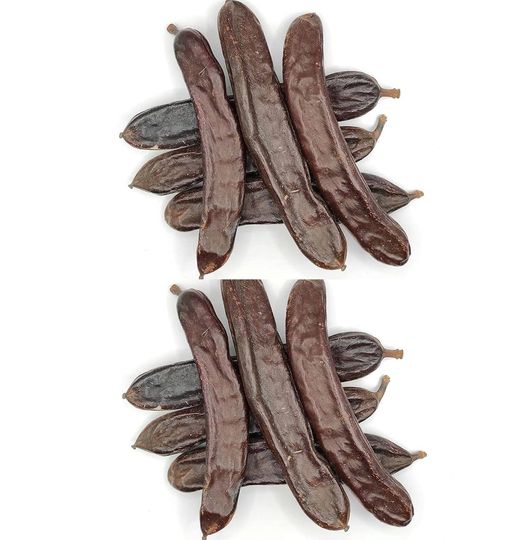ADVERTISEMENT
Origin and appearance of carob
Carob, known scientifically as Ceratonia siliqua , is the fruit of the tree of the same name (carob) belonging to the Fabaceae family. This tree is native to the regions of the Mediterranean basin and Western Asia.
Carob is a pod-shaped fruit, similar in appearance to a bean, with a sweet, fibrous pulp and seeds inside.
Nutritional value of carob
Carob is a food rich in nutrients essential to health. Its fruits contain a wide range of vitamins and minerals, including vitamin B, calcium, iron, magnesium, potassium and zinc.
Additionally, it is a natural source of dietary fiber, protein and antioxidants.
Health Benefits
- Digestive support : Thanks to its richness in fiber, carob is an excellent ally for digestive health. Fiber helps improve intestinal regularity, prevent constipation and promote the proper functioning of the digestive system.
- Weight control : The fiber in carob helps promote a feeling of fullness, thereby reducing appetite. This may be helpful for weight control and obesity management.
- Heart Health : Carob is cholesterol-free and rich in potassium, known to help reduce blood pressure. Consuming carob regularly can help keep your heart healthy and reduce the risk of cardiovascular disease.
- Immune Support : Thanks to the presence of antioxidants such as polyphenols, carob can help strengthen the immune system and protect cells from oxidative damage caused by free radicals.
- Cholesterol Control : The soluble fiber found in carob can help reduce LDL cholesterol levels in the blood, helping to maintain a healthy cardiovascular system.
- Source of Nutrients : Carob is a good source of calcium, essential for bone health, and iron, which helps prevent iron deficiency anemia.
ADVERTISEMENT
